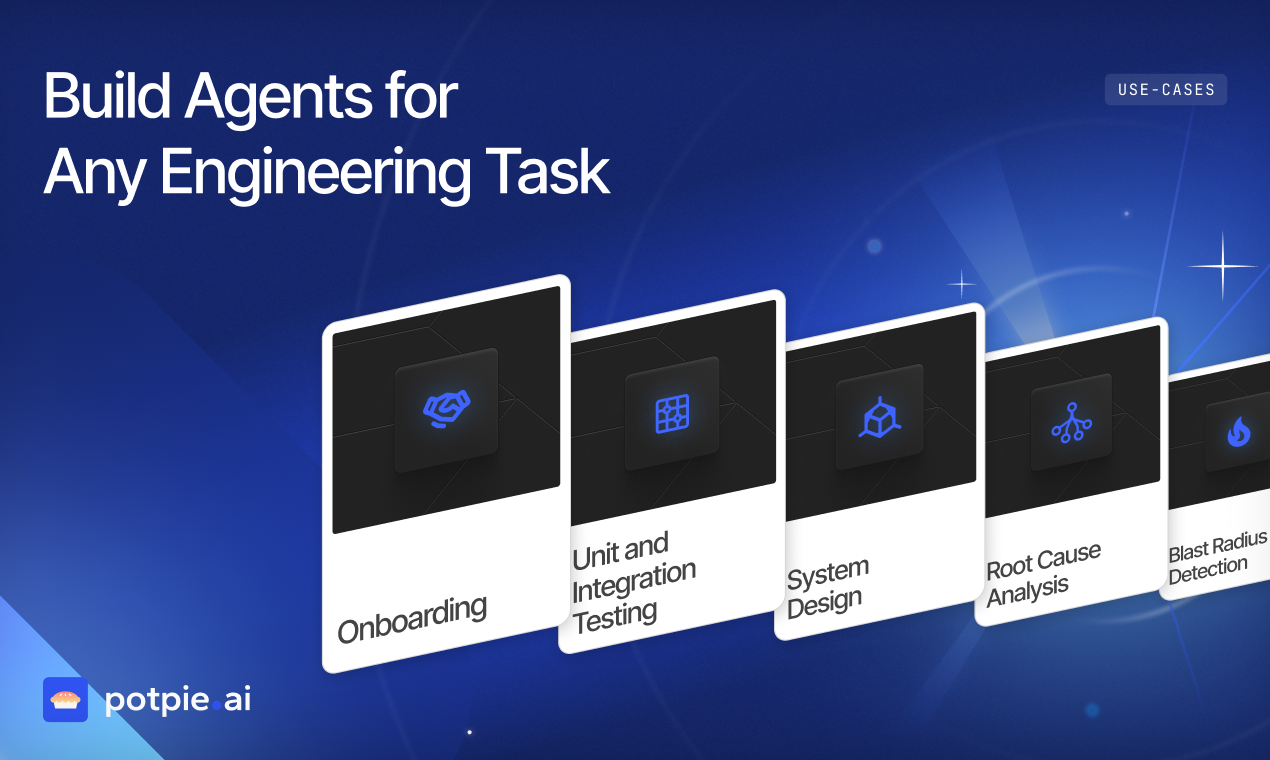Table of Contents
Overview
In the rapidly evolving world of AI-powered development tools, Potpie AI emerges as a unique and powerful open-source framework. Designed specifically for building task-oriented AI agents that operate directly within your codebase, Potpie AI promises to revolutionize how engineering teams tackle complex tasks. Let’s dive into what makes Potpie AI stand out and whether it’s the right tool for your development workflow.
Key Features
Potpie AI boasts a range of features designed to empower developers and streamline engineering processes:
- Code-aware agent creation: Build AI agents that deeply understand your specific codebase, allowing for more accurate and relevant assistance.
- Context-driven engineering automation: Automate repetitive engineering tasks by leveraging the contextual data within your project.
- Task-specific agent configuration: Configure agents to focus on particular tasks, ensuring efficient and targeted support for debugging, testing, or system design.
- Open-source and customizable: Benefit from the flexibility and transparency of an open-source framework, allowing you to tailor Potpie AI to your specific needs.
- GitHub-based deployment: Seamlessly integrate Potpie AI into your existing development workflow with GitHub-based deployment.
How It Works
Potpie AI empowers developers to create AI agents that live and breathe within their codebase. The process begins with deploying Potpie AI, either locally or in the cloud. Next, developers configure agents to understand the nuances of their specific codebase. This involves training the agents with relevant contextual data, enabling them to carry out predefined engineering workflows. These workflows can be executed autonomously, freeing up developers to focus on more strategic tasks, or semi-autonomously, allowing for human oversight and intervention.
Use Cases
Potpie AI’s versatility makes it a valuable asset across various engineering tasks:
- Code debugging and analysis: Agents can automatically analyze code for potential bugs and vulnerabilities, accelerating the debugging process.
- System architecture exploration: Explore different system architectures and evaluate their potential impact on performance and scalability.
- Automated testing routines: Automate testing routines to ensure code quality and identify regressions early in the development cycle.
- Developer onboarding assistance: New developers can quickly get up to speed with a codebase by leveraging AI agents to answer questions and provide guidance.
Pros & Cons
Like any tool, Potpie AI has its strengths and weaknesses. Here’s a breakdown to help you decide if it’s the right fit for your team.
Advantages
- Highly customizable: The open-source nature of Potpie AI allows for extensive customization to meet specific project requirements.
- Useful across engineering tasks: From debugging to system design, Potpie AI can be applied to a wide range of engineering tasks.
- Leverages real project context: By understanding the specific codebase, Potpie AI provides more relevant and accurate assistance.
Disadvantages
- Requires setup and codebase integration: Implementing Potpie AI requires initial setup and integration with the existing codebase.
- Limited GUI or UX support for non-developers: The current interface may be less intuitive for users without a strong technical background.
How Does It Compare?
The AI development tool landscape is becoming increasingly crowded. How does Potpie AI stack up against the competition?
- AutoGPT: While AutoGPT is designed for broader, more general tasks, Potpie AI focuses specifically on engineering workflows within a codebase.
- Cody by Sourcegraph: Cody excels at code navigation and understanding, while Potpie AI emphasizes the creation of task-oriented agents.
- CodeWhisperer: CodeWhisperer is primarily focused on providing code suggestions, whereas Potpie AI enables the automation of more complex engineering tasks.
Final Thoughts
Potpie AI offers a compelling solution for engineering teams looking to leverage the power of AI to streamline their development workflows. Its open-source nature, combined with its focus on code-aware agents, makes it a highly customizable and versatile tool. While it requires some initial setup and may not be ideal for non-developers, the potential benefits of increased efficiency and automation make Potpie AI a tool worth exploring.
